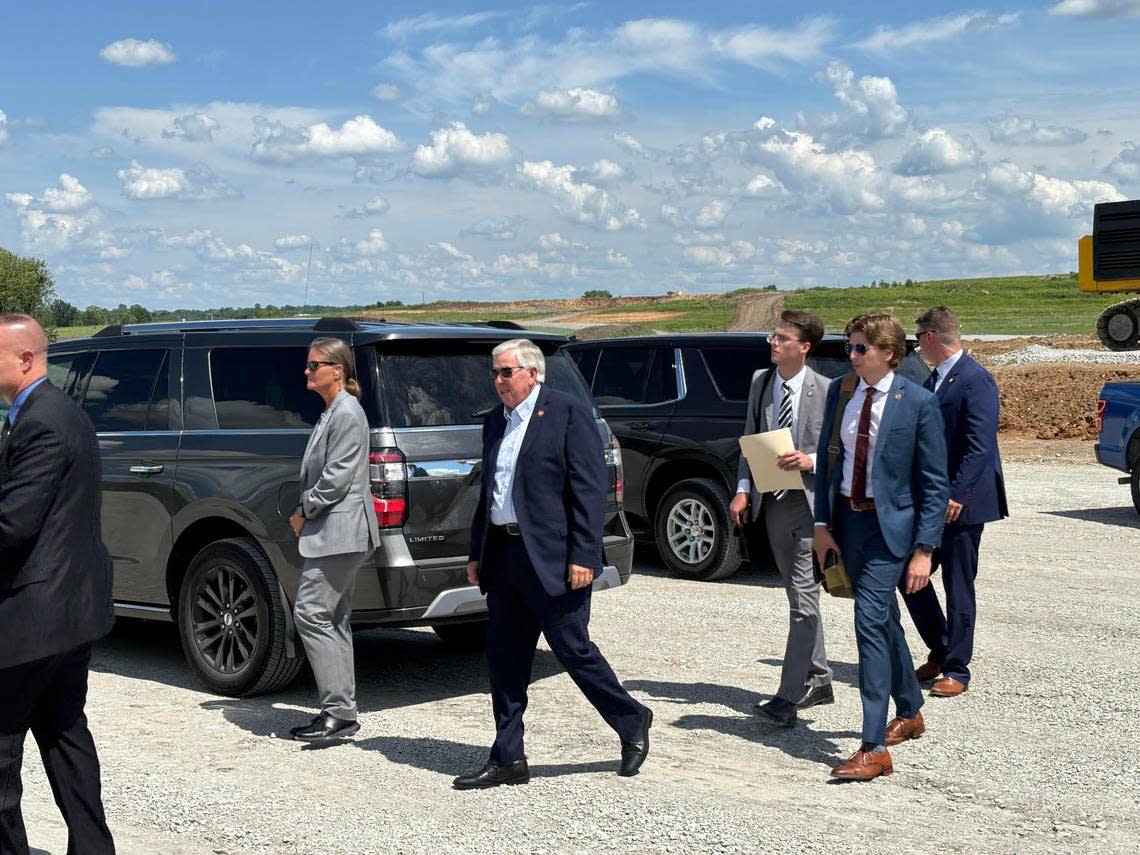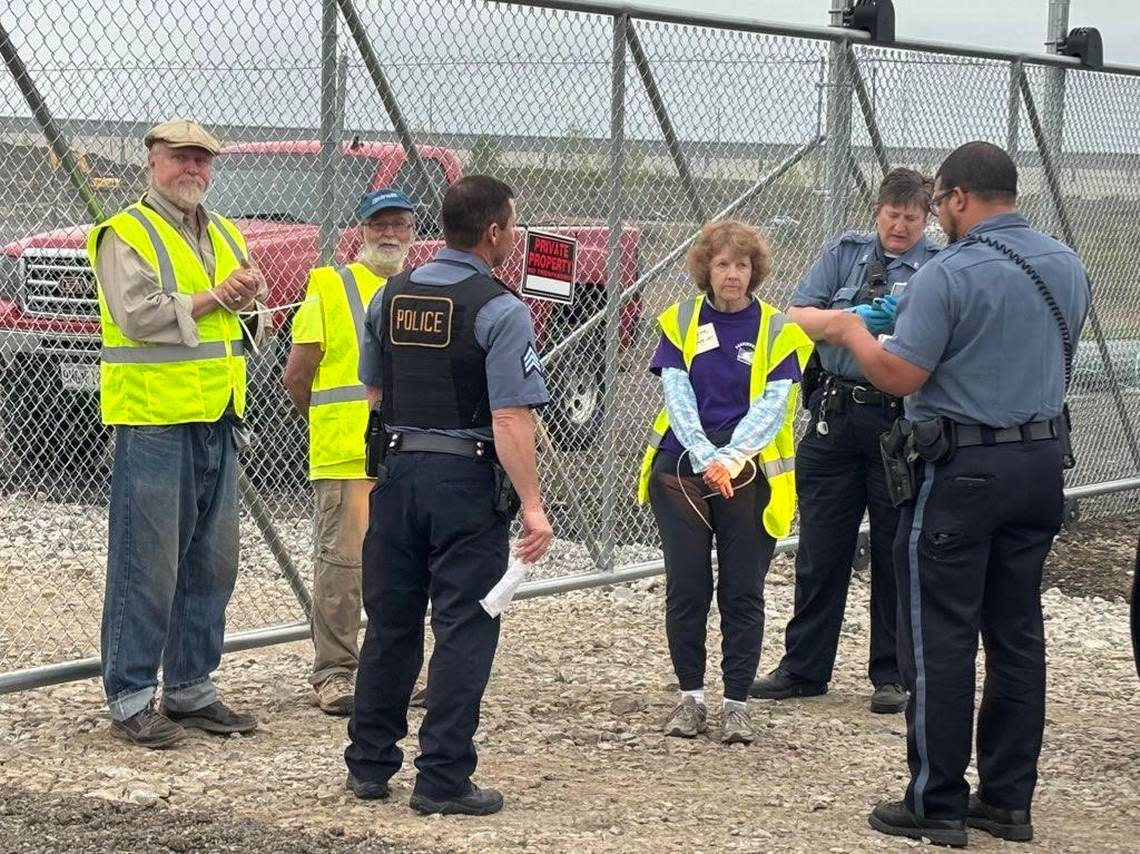Parson signs tax breaks for decade-long Kansas City nuclear weapons facility expansion
Missouri Gov. Mike Parson on Monday signed into law tax breaks for a sprawling expansion of a federal plant in Kansas City that builds key parts of U.S. nuclear weapons.
The Republican governor signed the bill, SB 1388, at the construction site, located near the National Nuclear Security Administration’s existing plant in south Kansas City. The plant, operated by technology giant Honeywell International Inc., assembles many non-nuclear parts for the nation’s nuclear stockpile.
The tax exemptions will go to a local developer to complete the project and then sell the expanded buildings back to the federal government. The proposed expansion will add an estimated 2.5 million square feet of office and manufacturing space. Proponents anticipate roughly 2,000 new jobs to come from the expansion.
“You’re talking about securing our country and making sure that this country stays safe through technology and through the resources we have,” Parson said before signing the bill.
The law implements a state and local sales tax exemption for “all sales and purchases of tangible personal property, building materials, equipment, fixtures, manufactured goods, machinery, and parts for the purposes of constructing” the nuclear site expansion, according to an official summary of the bill.
The legislation enjoyed bipartisan support from lawmakers in the Kansas City area, and the measure was sponsored by Greg Razer, a former Kansas City Democratic senator who resigned in May after Parson appointed him to the State Tax Commission.
“It’s going to be transformational for this community. This area is going to look different in a decade and that’s a good thing,” Razer said.
But the expansion, and accompanying tax breaks, have provoked a backlash from opponents of nuclear weapons. Protests at the construction site in April led to at least 10 arrests. Some lawmakers outside Kansas City had also likened the measure to Missouri giving tax breaks to help major corporations.
The project is expected to begin this year and continue into the “early 2030s,” the U.S. Department of Energy has previously said.
The agency’s website states that it is focused on “developing, producing, procuring and delivering over 80% of all nonnuclear components in support of the U.S. nuclear deterrent.”
A fiscal note attached to the legislation estimates that the federal agency plans to spend more than $3 billion on the expansion. However, nonpartisan staff were unable to determine the total loss in sales tax revenue from the exemptions but assumed “the fiscal impact could be significant.”
The Star’s Kacen Bayless contributed reporting



